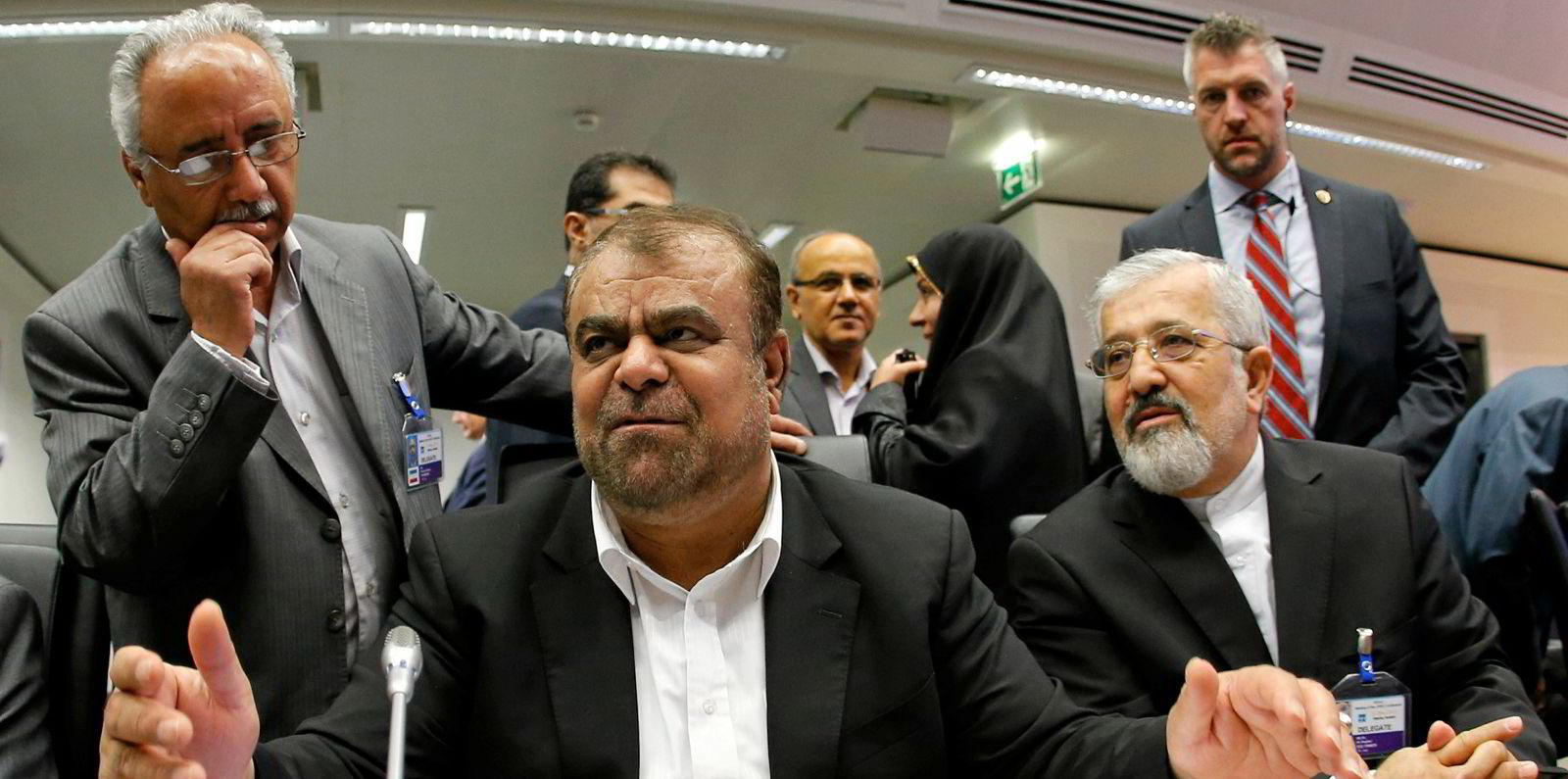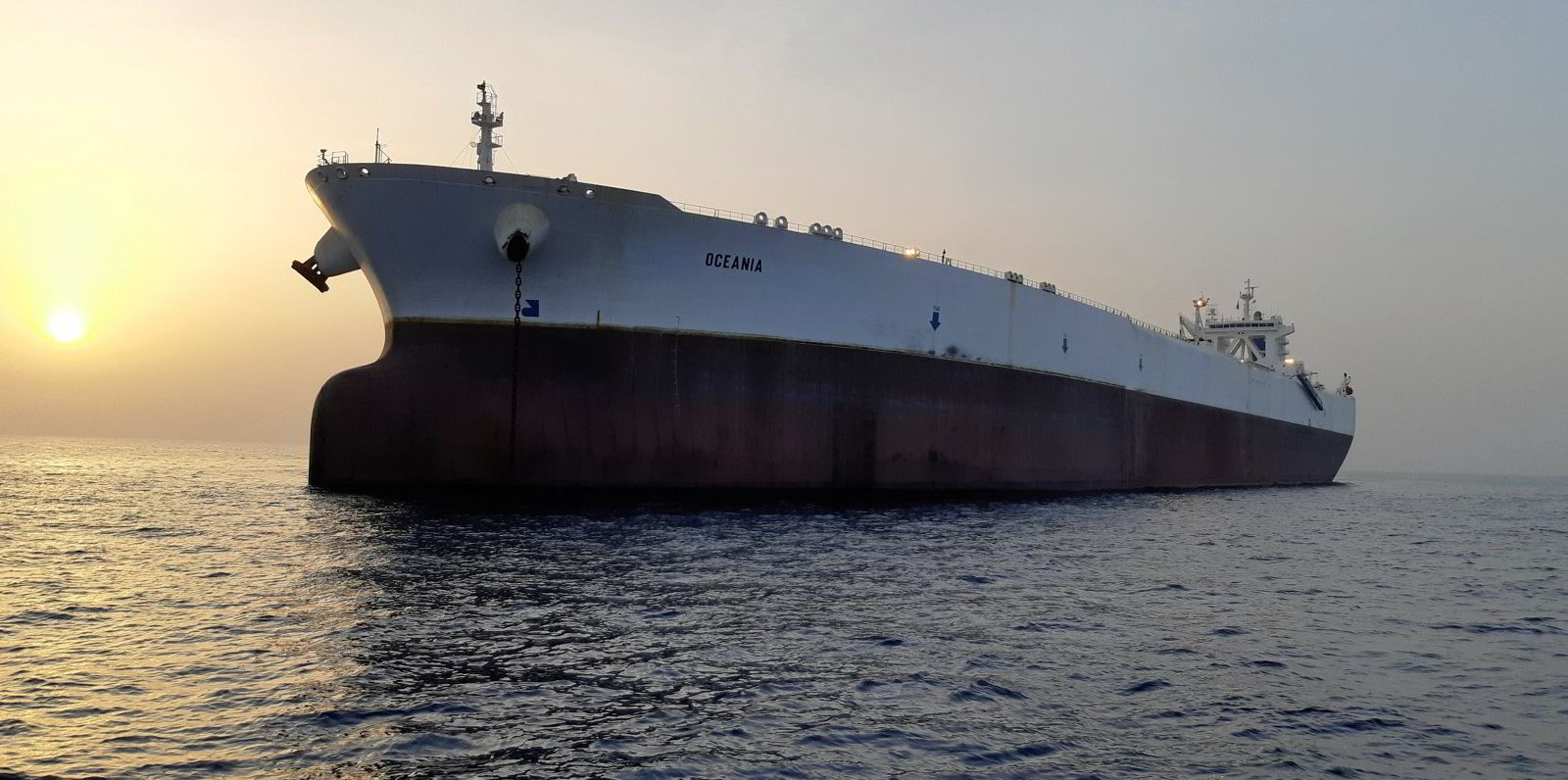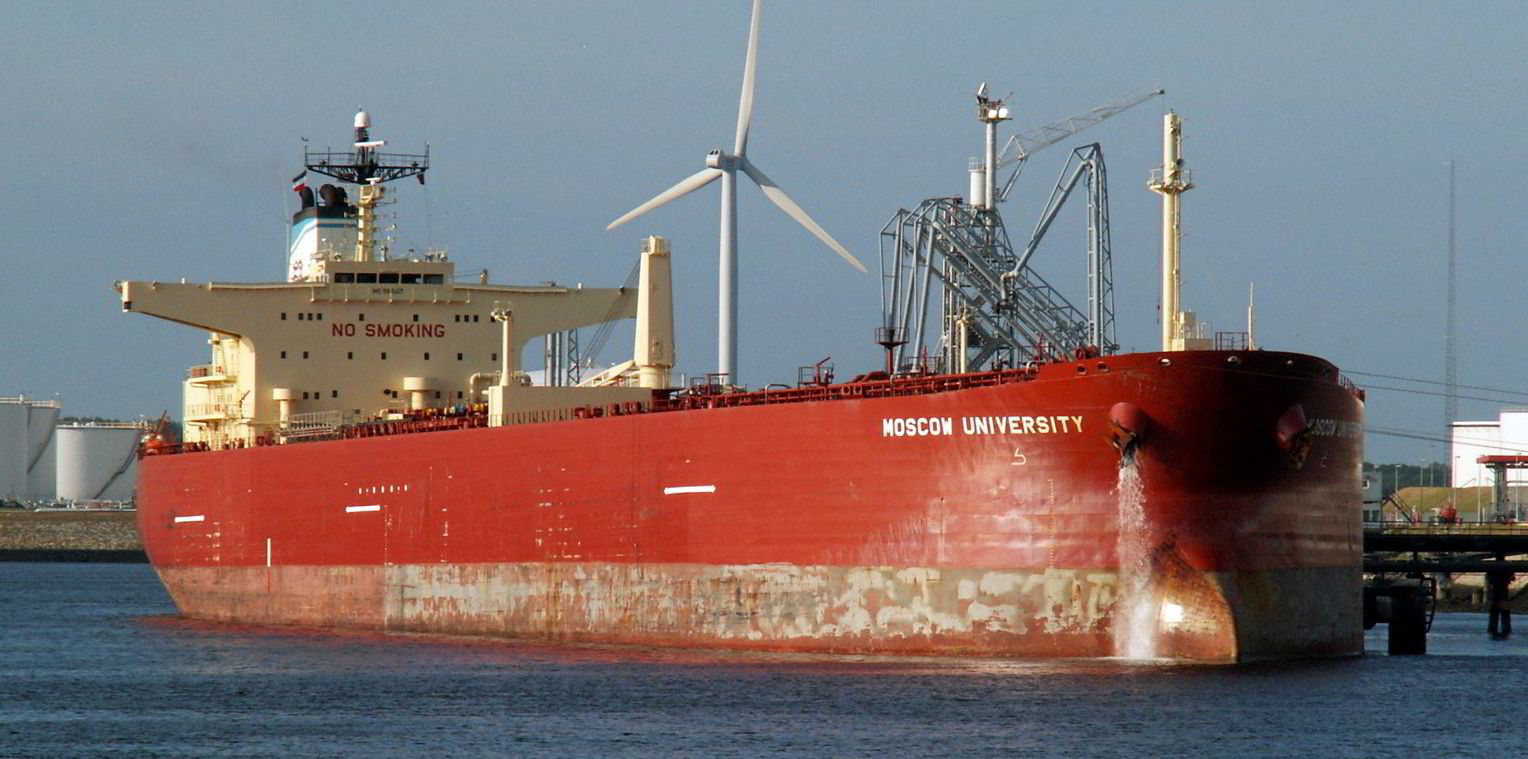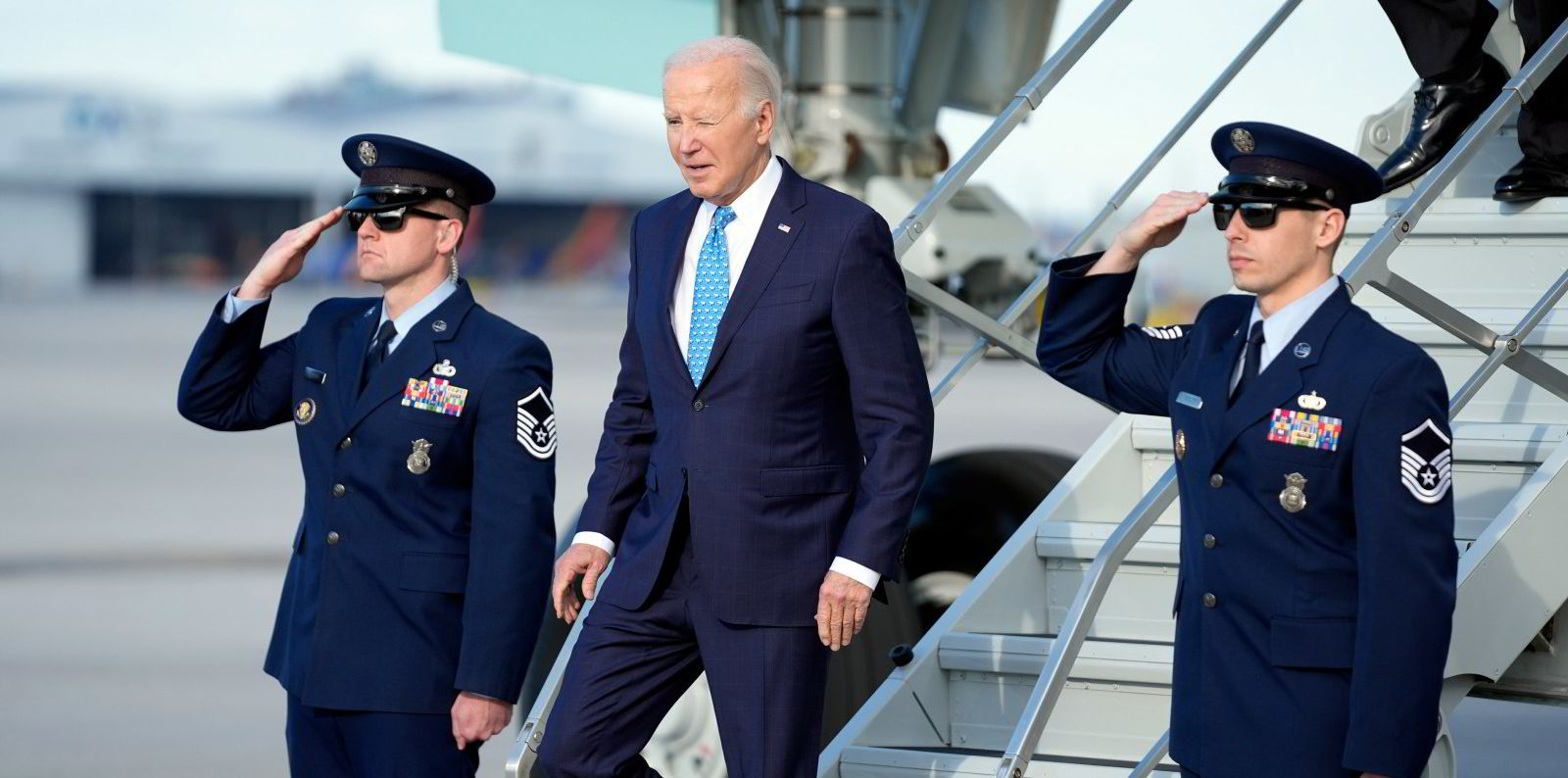The former kingpin of Tehran’s oil sanctions-busting programme successfully demanded the return of a consignment of disguised Iranian crude during a dispute over a ship-to-ship transfer off Oman involving a Thenamaris VLCC, US prosecutors claim.
Rostam Ghasemi, the late ex-oil minister who was said to go by the secret codename of “Roger”, said the operator of the 318,700-dwt Athina II (built 2005) needed to “cooperate” after mislabelled Iranian crude was discharged to the VLCC from a suspected shadow fleet tanker in November 2020, US court documents allege.
“This is the last chance not to make trouble … It’s not a threat, it’s just a reminder,” the then transport minister Ghasemi, a senior figure in Iran’s elite Islamic Revolutionary Guard Corps, wrote in an email, according to a US charge sheet.
Thenamaris is not named in the papers, but Iranian opposition website WikiIran has published emails from alleged members of the smuggling ring to Thenamaris staff that refer to the STS operation and threaten to detain the VLCC over the dispute.
Thenamaris staff say in the leaked emails that the VLCC had been chartered out and the owner was “compelled to abide by the terms of this contract and the instructions of the voyage charterers”.
But the company’s suspicions appear to have been raised, prompting a request for more documents and questioning why the cargo — listed as Omani crude — was showing on the paperwork as having been loaded in Iraq, according to the emails.
Thenamaris told TradeWinds that its corporate policy is not to comment on commercial matters.
Details of the alleged STS transfer feature in two indictments, totalling 91 pages, published by the Department of Justice.

Nine people face charges, including conspiracy to support a terrorist organisation, money laundering and sanctions-busting over what prosecutors say is a long-running oil smuggling racket.
US Deputy Attorney General Lisa Monaco said the charges “strike at the core of the global oil smuggling network that Iran has built to fund its regime of terror and repression”.
The leaked emails suggest that at the time of the STS operation, the Athina II had been chartered by Nimr International, a Romania-based company claimed by the US to be controlled by Omani businessman Mahmood Al Habsi.
Al Habsi was later blacklisted by the US in 2021 for allegedly facilitating the sale and shipment of Iranian oil to benefit the Revolutionary Guard.
He is among the nine who face criminal charges. Al Habsi could not be reached for comment.
Arrest warrants have been issued, according to court documents.
The disputed STS operation between the 300,000-dwt Oman Pride (built 1998) and the Athina II was one of a series of alleged transfers detailed in the US documents after Ghasemi was said to have taken charge of the programme from 2018.
The Oman Pride was used as a buffer between tankers affiliated with Iran and third-party vessels to try to obscure the origins of the oil, according to the US documents. Iranian cargoes were said to be often described as Omani oil.
The indictments include details of alleged correspondence over the STS operation, including from Kasim Oztas, the managing director of Turkish-based oil export business ASB Group, which was later sanctioned by the US in 2022 over its Iranian links.
An ASB Group subsidiary chartered the Oman Pride to transport Iranian crude to south China ports, according to US prosecutors.
It allegedly loaded Iranian oil from a tanker in October 2020 before receiving additional crude from Iran’s Kharg Island while spoofing its position, the documents claim.
It subsequently discharged some of its cargo of about 2m barrels to the Athina II in early November in a move that leaders of the smuggling network claimed to know nothing about, prosecutors allege.
Evidence and allegations
Later that month, Oztas sent an email to the owners of the Athina II in which he said the transfer had happened “without our permission or instruction”, according to the indictment.
A copy of the email was also sent to Morteza Ghasemi, the son of Rostam, who was a key supervisor of the schemes, prosecutors claim.
Morteza Ghasemi and Oztas are among those charged, and arrest warrants have been issued, according to court documents.
Nobody at ASB Group could be reached for comment. Contact details for Morteza Ghasemi were not immediately available.
Days later, on 22 November, Ghasemi Sr sent an email to the Athina II’s operator and made clear he was writing on behalf of Quds Force, the external affairs branch of the Revolutionary Guard, the US papers alleged.
The commander went on to say that the operator “should cooperate with us in China case right now”, according to the indictment. He called for a backloading operation of the oil to the Oman Pride, prosecutors claimed.
The prosecution documents failed to clarify whether the operator referenced was the owner or charterer of the Athina II. The Office of Foreign Assets Control referred inquiries to the US Department of Justice, which did not respond to a request for comment.
The ship was commercially and technically managed by Thenamaris before its sale in March last year, according to shipping database Equasis.
VesselsValue listed Thenamaris as the beneficial owner before the tanker’s sale to Singapore interests, when it was renamed Selene II.
Within days of Ghasemi’s interventions, the oil transferred to the Athina II was returned to the Oman Pride on 29 November before the VLCC left the area, according to the prosecution case.
Ghasemi, who died in December 2022, was described as a central figure in Iranian sanctions evasion and is alleged to have taken a hands-on role.
He approved oil sales, arranged ship purchase agreements, organised charters and acted as an enforcer when disputes in multi-party deals threatened to disrupt sales, the US alleges.
Despite being under US sanctions, he was Iran’s oil minister from 2011 to 2013. He played a leading role at Opec when Iran held the group’s presidency in 2011.

Claire Jungman, chief of staff at United Against Nuclear Iran, a campaign group that raised the alarm about some of the transfers identified in the indictments, said the allegations suggested Iran’s oil export plans were “deeply embedded within the power structures of Iran”.
“It’s a wake-up call for all of us about the lengths some will go to avoid the laws and the importance of staying vigilant and enforcing sanctions,” she said.
Read more
- Accused shadow fleet aframax sold for recycling for the second time
- US and UK pound Houthi targets used to attack shipping
- CMA CGM suspends Red Sea transits after Houthi attack
- Euronav chief executive sticks to his guns on Red Sea rerouting
- Chinese bulker owners feed tonnage to Bangladeshi ship recyclers







